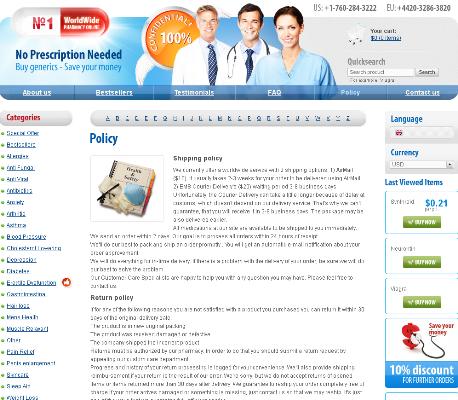**understanding Naprosyn Interactions with Other Medications**
Naprosyn and Common Over-the-counter Pain Relievers
As a nonsteroidal anti-inflammatory drug (NSAID), Naprosyn is commonly used to alleviate pain and inflammation. However, when combined with over-the-counter pain relievers like ibuprofen and aspirin, it can increase the risk of gastrointestinal bleeding and ulcers. These interactions can be particularly concerning for individuals with preexisting conditions or those taking higher doses. Understanding these potential hazards is crucial for safe use. Always consult your healthcare provider before combining medications to avoid adverse effects.
| Over-the-Counter Pain Reliever | Potential Interaction with Naprosyn |
|---|---|
| Ibuprofen | Increases risk of gastrointestinal bleeding and ulcers |
| Aspirin | Elevates the possibility of adverse gastrointestinal events |
Prescription Medications That May Interact with Naprosyn

Navigating the intricacies of Naprosyn interactions with prescription medications is crucial for patient safety. Naprosyn, a nonsteroidal anti-inflammatory drug (NSAID), is commonly prescribed to alleviate pain and inflammation. However, it can interact with several prescription drugs, potentially leading to unintended side effects. For instance, when combined with certain diuretics, it may reduce their effectiveness, leading to fluid retention and increased blood pressure. Additionally, Naprosyn can interact with methotrexate, a medication used to treat cancer and autoimmune diseases, increasing the risk of toxicity.
It's essential to consult with a healthcare provider before combining Naprosyn with other prescription medications. This professional guidance helps prevent adverse interactions, ensuring both drugs perform their intended functions safely and effectively. For instance, patients using lithium for bipolar disorder may experience elevated lithium levels and toxicity when coupled with Naprosyn. By thoroughly understanding these interactions and communicating with healthcare professionals, patients can optimize their treatment plans while minimizing risks.
The Role of Naprosyn in Treating Inflammatory Conditions
Naprosyn, a widely utilized nonsteroidal anti-inflammatory drug (NSAID), plays a crucial role in mitigating inflammation associated with various conditions, including arthritis and tendinitis. This medication works by inhibiting enzymes that contribute to inflammation and pain in the body. As a result, patients often experience significant relief from symptoms like swelling and stiffness, enabling them to maintain a more active lifestyle. While Naprosyn effectively reduces inflammation, understanding its interactions with other medications is important to maximize benefits and minimize potential risks.
Naprosyn and Its Potential Impact on Heart Medications

When it comes to combining Naprosyn with heart medications, it's crucial to be aware of potential interactions that could affect your cardiovascular health. Naprosyn, a commonly used anti-inflammatory drug, can potentially impact the effectiveness of certain heart medications such as blood pressure medications and anticoagulants. For instance, using Naprosyn alongside ACE inhibitors or beta-blockers may reduce the blood pressure-lowering effects, making it harder to manage hypertension effectively.
Moreover, Naprosyn can increase the risk of gastrointestinal bleeding, a concern especially pertinent for those on anticoagulants like warfarin. This combination could lead to severe complications. Therefore, if you're taking heart medications, consult your healthcare provider before starting or continuing Naprosyn to ensure that your treatment plan maintains its efficacy and safety.
How Antidepressants Can Interact with Naprosyn
The interaction between Naprosyn and antidepressants can be significant and multifaceted. Both medications can affect the gastrointestinal tract, potentially increasing the risk of gastrointestinal bleeding or ulcers. This occurs because Naprosyn, a nonsteroidal anti-inflammatory drug (NSAID), can irritate the stomach lining, while certain antidepressants, particularly selective serotonin reuptake inhibitors (SSRIs), can reduce levels of stomach-protective prostaglandins.
Furthermore, the combination of these drugs may amplify their individual side effects, leading to heightened risk of severe adverse reactions. Patients who require both therapies should be closely monitored by healthcare providers for any signs of bleeding or unusual side effects.
Doctors may recommend adjustments in dosage or additional protective measures, such as prescribing a proton pump inhibitor (PPI) to mitigate gastrointestinal risks. It's crucial to discuss all current medications with your healthcare provider to ensure safe and effective treatment.
| Medication Type | Potential Interaction with Naprosyn |
|---|---|
| Antidepressants (SSRIs) | Increased risk of gastrointestinal bleeding and heightened side effects |
| Antidepressants (Other Types) | Possible interaction, monitoring required |
Managing Naprosyn with Blood Thinners and Anticoagulants
Taking Naprosyn alongside blood thinners and anticoagulants requires careful medical supervision, as these combinations can elevate the risk of bleeding. Naprosyn, a nonsteroidal anti-inflammatory drug (NSAID), can interfere with the blood's clotting mechanisms, potentially leading to serious complications. If you are prescribed or taking over-the-counter blood thinners, it's crucial to consult your healthcare provider before starting Naprosyn. They may adjust your dosage or recommend alternative treatments to manage your condition safely.
Monitoring for signs of excessive bleeding, such as unusual bruising, nosebleeds, or prolonged bleeding from cuts, is essential. Regular check-ups and blood tests can help ensure that both medications are working effectively without causing harm. Your healthcare provider may also advise dietary or lifestyle changes to further minimize risks. By maintaining open communication with your medical team, you can achieve a balance that optimizes your health while managing any potential drug interactions.

